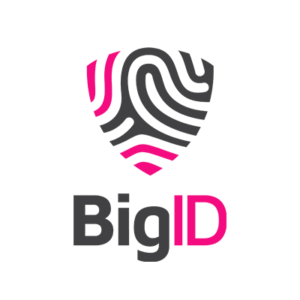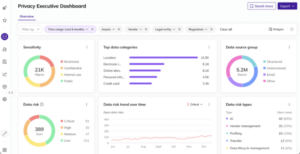
BigID Deepens Its AI-Driven Capabilities for Enterprise Privacy and Compliance

Shutterstock
As data privacy faces relentless scrutiny, companies are racing to modernize their compliance strategies and adopt technologies that can manage risk at scale. A critical priority is establishing automated mechanisms for privacy and compliance enforcement.
BigID, a data intelligence company, continues to emerge as a key player in the AI-powered data governance space. The New York-based company has introduced its Privacy Executive Console that provides high-level insights for C-suite decision-makers to allow them to have greater visibility and control over critical data privacy operations.
Additionally, BigID has introduced an advanced automation suite for data retention and deletion. The company claims that this solution equips organizations with the tools needed to enforce compliance policies and mitigate regulatory risks.
“Today’s privacy teams are no longer solely focused on ticking compliance boxes,” wrote BigID in a blog. “They have evolved into multifaceted units, acting as risk managers, operational enablers, and strategic partners, collaborating with diverse business units. However, this expanded role is unfolding within an environment characterized by unprecedented demands.”
According to BigID, data privacy teams often have to rely on fragmented reports, siloed tools, and static spreadsheets for data subject access requests (DSARs), data mapping, retention tracking, and risk assessments. The limitations of these tools leave them ill-equipped to meet the demands of heightened executive expectations, increasing operational complexity, and tightening regulatory scrutiny.
BigID is positioning its Privacy Executive Console as a centralized dashboard designed to simplify privacy management by consolidating operations into one AI-powered platform.
The company claims that by replacing fragmented tools and manual processes with automated workflows, privacy teams can gain real-time insights and a clearer view of their compliance posture. BigID also asserts that its patented “identity-aware AI” can provide continuous monitoring, helping organizations address privacy risks proactively rather than reacting after issues arise.
Another key feature of the tool is its executive-ready reporting, providing business leaders, such as Chief Privacy Officers (CPOs), with “interactive dashboards with drill-down capabilities to pinpoint risk hotspots, surface compliance trends, and quantify privacy program effectiveness.”
While the Privacy Executive Console equips leaders with visibility and control over their privacy programs, enforcement still requires precision at the data level. That’s where BigID’s new AI-driven retention and deletion capabilities come in.
As data volume continues to grow, organizations can’t have data retention and minimization as a back-office privacy task. BigID emphasizes that enterprises must invest in integrated discovery, classification, retention scheduling, and native deletion.
 Traditional approaches are often plagued by time-consuming manual processes and fragmented rules, and a lack of business context. Even when policies are defined, these constraints hinder enforcement.
Traditional approaches are often plagued by time-consuming manual processes and fragmented rules, and a lack of business context. Even when policies are defined, these constraints hinder enforcement.
According to BigID, “Legacy tools fall short. They require technical expertise, can’t scale across diverse systems, and lack the automation needed for real-time enforcement. The result? Outdated records, compliance gaps, and missed opportunities to reduce exposure.”
BigID aims to solve these challenges with AI-driven automation for data retention and deletion. Instead of manual processes, its platform automates retention scheduling based on business context and regulatory requirements
To ensure enforcement, the new tools help integrate native deletion, allowing companies to remove expired or unnecessary data directly at the source across structured and unstructured environments. They also map retention policies to regulations to allow users to consolidate rules in a single workflow.
While BigID hasn’t mentioned this in their press release, a potential next step could be AI-generated policy recommendations tailored to the organisation’s specific regulatory framework.
“BigID is setting the standard for enforceable privacy. With capabilities no other platform offers—like native deletion and business-aligned retention scheduling—privacy teams can finally operationalize data minimization and deliver real business value.”
BigID appears confident in its capabilities, but it is operating in a crowded space. Competitors like TrustArc and OneTrust are rolling out their AI-powered automation upgrades. Its success may hinge on how effectively it can differentiate with native enforcement and identity-aware intelligence at scale.
With its latest capabilities, BigID positions itself as a strong contender in the privacy automation space. However, BigID must keep innovating to maintain its edge.
Earlier this year, BigID launched its AI-powered Data Security Platform (DSP), named BigID Next, to help enterprises discover, manage, and protect data at scale. The platform serves as the strategic foundation for the company’s Privacy Executive Console and AI-Automated Data Retention and Deletion.
Related Items
One in Five Businesses Lacking Data Governance Framework Needed For AI Success: Ataccama Report
It’s 10 pm. Do You Know Where Your Company’s Data Is?
Breaking Down Silos, Building Up Insights: Implementing a Data Fabric



























